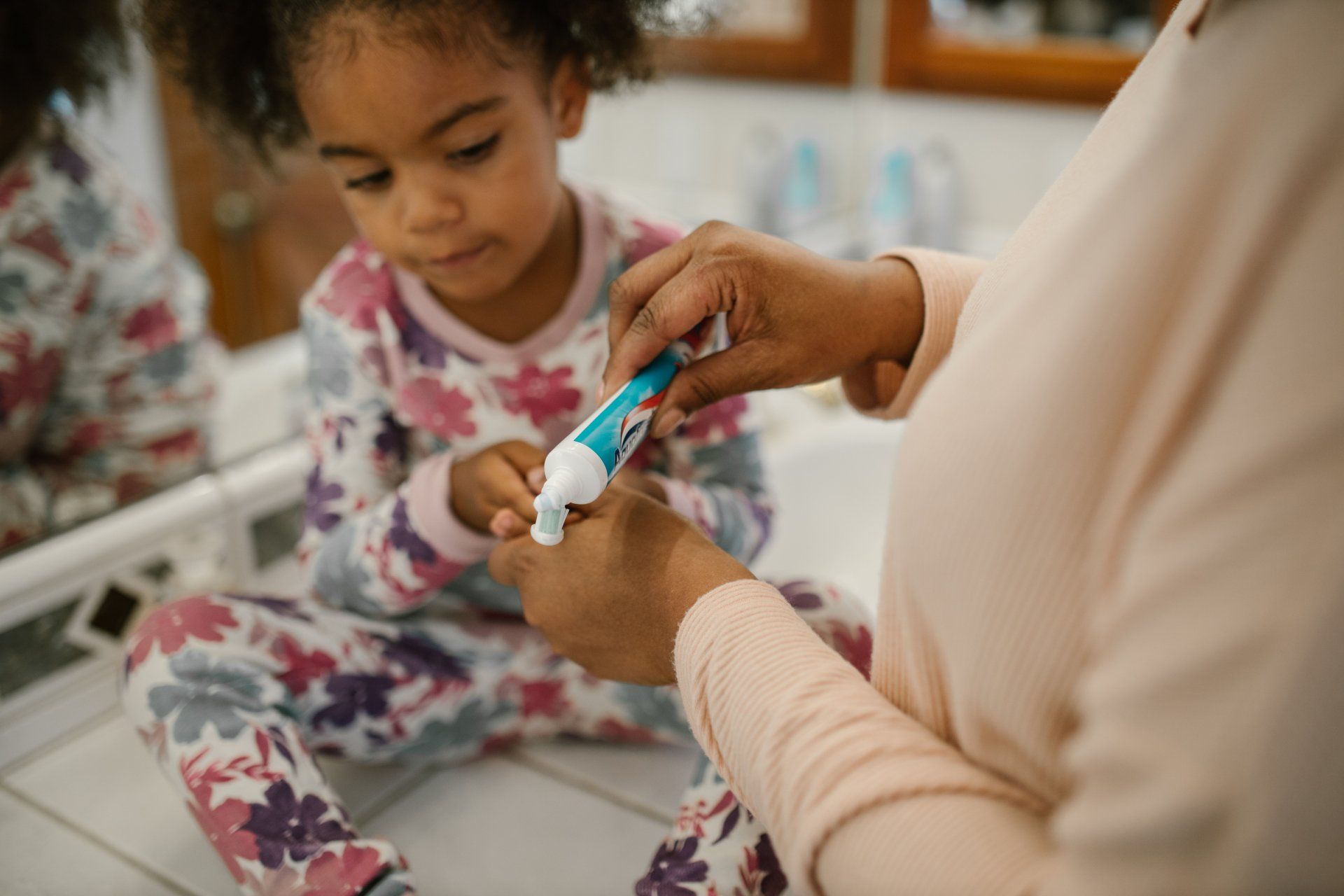The Importance of Teaching Dental Care to Children at a Young Age

The Importance of Teaching Dental Care to Children at a Young Age
Dental hygiene is an important part of keeping healthy. That’s why establishing good habits early is so critical. It may not be immediately apparent, however, at what age you should start establishing those habits with children. Do you need to be brushing if they don’t have teeth? What about just one tooth? Do toddlers really need to floss? What about a 6-year-old whose teeth don’t touch?
First of all, being concerned enough to ask these questions means you’re invested in your child’s dental health, which is a good sign. Second, we hope to provide you with answers to these questions, and several others that you may have been wanting to ask. By the time you’re done reading this, you should have all the information you need to help your child establish lifelong habits of good dental care.
When to Start Brushing
First, a quick biology lesson. Teeth actually start growing in the second trimester of pregnancy. By the time the child is born, your child already has 20 primary teeth, a few of which are already fully developed in the jaw, waiting to push through. While those teeth aren’t exposed to harmful bacteria until after they break through, the baby’s gums are . So even before there’s teeth showing, it’s good practice to run a wet, clean cloth over the gums to wipe off bacteria. This helps reduce the risk of infection when they start cutting teeth.
Once the teeth are out, brush them gently with a wet infant toothbrush. If you’re considering using toothpaste, be sure you consult your pediatrician or dentist first. Then as the baby grows and more teeth come in, start transitioning into more traditional brushing practices. For example, once teeth are close enough to touch, start flossing them, as plaque and bacteria will hide between them.
A note on flossing: as your child gets older, the teeth will begin to spread out (and fall out), leaving gaps between them. You don’t need to floss all of a child’s teeth, just the ones that are touching. Those that are hanging out by themselves will have their sides cleaned by effective brushing.
Why Start So Young?
Bacteria starts working on your child’s mouth from day one, doing damage to both teeth and gums. Cavities and gum disease can happen at any age, and they cause a significant amount of pain and discomfort. What’s more, babies and toddlers (and many young children) can’t always effectively communicate what’s causing them discomfort, which means it’s harder to identify what they’re whining and crying about. Taking care of their teeth and gums from the start helps avoid those problems.
Good dental hygiene is all about habits. Without firmly established habits, it’s easy to rush out the door in the morning, or flop on the bed at night, and overlook the need to properly clean your teeth. Starting early helps teach a child to associate brushing and flossing with getting up in the morning and going to bed at night. That way, by the time they’re old enough to prepare for the day (and the evening) by themselves, dental care will already be part of the routine. If done right, they will continue those habits well into adulthood.
Dental Hygiene Tips
- As early as possible, teach your children not to swallow the toothpaste, and instead to spit it out into the sink.
- For children over three, use only a pea-sized dab of fluoride toothpaste. For toddlers younger than that, use just a smear. For infants, ask your dentist or pediatrician.
- Brush your child’s teeth twice a day, and floss them once a day. When they become old enough to do it themselves, encourage them to continue at the same frequency.
- Use soft-bristled brushes for children, as stiffer bristles may be too abrasive for children.
- Brushing should last about two minutes. Play your child’s favorite songs to help them pass the time if need be.
With a little effort and a little consistency, you can help your children establish habits that will protect their teeth for their whole life. For more information on how to care for your child’s teeth, contact your local Salt Lake City dentist.
The post The Importance of Teaching Dental Care to Children at a Young Age appeared first on South Temple Dental.


Connect With Us on Facebook
Areas We Serve
Downtown Salt Lake City
84103, 84116, 84104, 84101, 84111, 84102, 84112, 84113, 84108, 84105, 84115, 84104, 84103
Business Hours
- Monday
- -
- Tuesday
- -
- Wednesday
- -
- Thursday
- -
- Friday
- -
- Saturday
- Closed
- Sunday
- Closed
All Rights Reserved | South Temple Dental
Dentist in Downtown Salt Lake City, Utah
